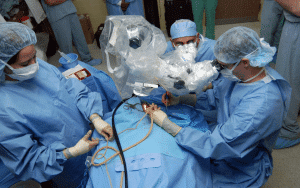 The things you do after surgery make a difference in the success and the time of healing. Tens of millions of Americans undergo surgery each year, and nearly 50 million patients suffer from complications.
The things you do after surgery make a difference in the success and the time of healing. Tens of millions of Americans undergo surgery each year, and nearly 50 million patients suffer from complications.
When a post-op issue occurs, it’s most likely to happen within the first 30 days.
More often than not, they arise due to poor self-care.
I’m the bestselling author of a health-boosting longevity book, Life is Long. In my book I share how to protect your health with research based health information. I write a lot about living longer. But in this article I want to share about what to do after surgery to prevent problems and promote healing! Read this guide for tips.
Follow Good Wound Care
Caring for a wound on your own is not as hard or scary as many think. You can take care of even the largest wounds on your own and follow-up on the progress with the healthcare team.
If you are clueless about how to do wound care, nurses are more than happy to teach you and inform you of the proper supplies.
Always make sure to wash your hands first to prevent the chance of infection.
Stay on Top of Your Nutrition
Not many people have an appetite following surgery. You do not have to force yourself to eat when you do not want to. However, you do want to make sure the food you are eating is high-quality. You should eat foods like:
- Protein: essential for wound healing
- B12 and Iron: helps bone marrow create new blood cells
- Fiber and Probiotics: strengthens the immune system and helps the digestive system
- Vitamin C and Zinc: good for immunity and aids in healing
Eating a variety of healthy foods helps your body through the healing process.
Keep Pain in Control
Controlling your pain does not mean you will not have it at all. When you control pain, you control the frequency and intensity. People who are in a lot of pain will find it hard to do even the simplest activities. Even with medication prescribed by a doctor, pain may still exist.
It helps to find other ways to help reduce how often you feel pain or reduce the level along with medication. Alternative pain management such as acupuncture as well as visiting a naturopath clinic located in Scottsdale to help you fight through the pain. You can read more here on alternative methods.
Slowly Get Moving
Make sure not to overdo it. Start slowly at your own rate the moment you are able to walk. Your doctor will let you know when doing so is safe.
Walking is important to help prevent blood clots and keeps the digestive system going. Staying in bed or sitting for too long increases the risk of complications like deep vein thrombosis and pneumonia.
Listen to Your Doctor
If you put trust in your doctor to do the surgery, you should trust them afterward too. If a doctor says to stay hydrated, keep your legs elevated, or keep off a leg, listen to them.
Show up for the follow-up appointments and don’t be afraid to ask for help when you need it or have questions.
Knowing What to Do After Surgery
Hopefully, this article has helped you get a better idea of what to do after surgery. If you implement these tips you shouldn’t have issues and the healing process will be smooth.
Live your healthiest, longest life
Check out my bestselling health-boosting book, Life is Long.
Think happier. Think calmer.
Think about subscribing for free weekly tools here.
No SPAM, ever! Read the Privacy Policy for more information.
One last step!
Please go to your inbox and click the confirmation link we just emailed you so you can start to get your free weekly NotSalmon Happiness Tools! Plus, you’ll immediately receive a chunklette of Karen’s bestselling Bounce Back Book!


 The things you do after surgery make a difference in the success and the time of healing. Tens of millions of Americans undergo surgery each year, and nearly
The things you do after surgery make a difference in the success and the time of healing. Tens of millions of Americans undergo surgery each year, and nearly 